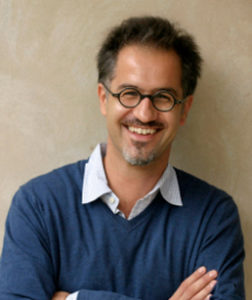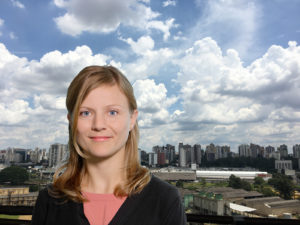36th Käte Hamburger Lecture

With Orfeo Fioretos, Associate Professor of Political Science at Temple University in Philadelphia
Global governance is commonly described as complex and governments as motivated by efforts to limit such complexity. Orfeo Fioretos, Associate Professor of Political Science at Temple University in Philadelphia inquires into how governments manage global governance complexity, specifically the question of international institutional proliferation. In the 36th Käte Hamburger Lecture, Fioretos will talk about Struggling with Complexity: How Governments Fail to Limit Fragmentation in Global Governance. Government officials often profess that they wish to limit institutional proliferation for various reasons, including high administrative burdens, and costs from redundancy and contradictory mandates. Yet, international institutional proliferation has not abated in recent decades; the number of organizations and the complexity of global governance have, if anything, increased. Thus, Prof. Fioretos explores what historical records from government archives in France, Germany, the United Kingdom, and the United States reveal about the reasons governments have failed to limit institutional proliferation. According to Fioretos‘ assessment, innovations in informal cooperation emerged as a means of containing the costs of (formal) complexity and to harness some of its benefits.
Date: Tuesday, 16th June 2020 (17:30-18:30h, sign in to webinar: 17:20)
Online Lecture – Access link will be provided after registration for the event.
Registration for the Käte Hamburger Lecture: https://www.gcr21.org/events/upcoming/struggling-with-complexity-how-governments-fail-to-limit-fragmentation-in-global-governance
Overview of events: https://www.gcr21.org/events
Communicative Power and Global Cooperation

2nd Annual Conference
22 June 2020, 9:30 a.m. – 6:00 p.m.
Online-Event via Zoom | Link provided after registration
The 2nd Annual Conference of the Käte Hamburger Kolleg/Centre for Global Cooperation Research (KHK/GCR21), organised together with the Main Research Area ‘Transformation of Contemporary Societies’ at the University of Duisburg-Essen, aims to explore the nexus between communication and cooperation, hitherto often neglected in research on global politics, transnational and global governance, and regional integration.
Communication can move people to do things they wouldn’t do otherwise. The reason is that communication shapes identities and relationships, thereby often making a difference in facilitating, stabilising and intensifying collaboration, or preventing, destabilising or disrupting it. This is what we call ‚communicative power‘. However, what is not well understood so far is how communicative power is mobilised globally, and what makes it succeed or fail in specific global and transnational political contexts.
The Annual Conference seeks to examine the workings of communicative power, as distinct from structural, material and positional power, in creating possibilities and hindrances for transnational and global cooperation. Understanding better how communicative power works is paramount in a context in which global cooperation, despite pressing problems of planetary scale such as climate change, is increasingly contested. Communicative power is central to processes of critique and justification of (global) public policies, and it is even more so in times of often opposing world order conceptions. Even when actors agree on overarching goals, such as sustainability, communicative challenges can still pervade their practical cooperation because of different world views. How global cooperation is communicated and how it is framed by politicians and media is also likely to shape publics’ and electorates’ support for or opposition against global politics.
Researchers of the German Development Institute / Deutsches Institut für Entwicklungspolitik (DIE) will contribute to the agenda of this conference. Maximilian Högl will talk about ‚Communication for Climate – How Communication (Dis-)enables Cooperation in the Climate Negotiations‘ and Johanna Vogel will reflect on ‚The Role of Trust and Respect in Virtual Spaces in order to foster Transnational and Transdisciplinary Cooperation towards Sustainability Transformation‘.
Registration and further information: www.gcr21.org/events/upcoming/2nd-annual-conference-communicative-power-and-global-cooperation
Christine Unrau at UFABC, São Paulo

From mid.February to mid-March, 2020, research group leader Christine Unrau was Capes Print Visiting Professor at the Universidade Federal do ABC, São Paulo State, Brazil. There, she pursued her research project on sentimental education, i.e. the mobilisation of emotions in the context of forced migration. During her stay, she also presented her research in seminars, workshops and lectures. Her first public lecture was entitled “Time for indignation?” and explored emergence of indignation as an emotion norm in the context of globalisation. The second public lecture, “Sentiment and Progress? On the role of emotions for political change”, took up the notion of progress, which has recently acquired centre stage in debates on the form and directionality of political transformations.

Schreibe einen Kommentar